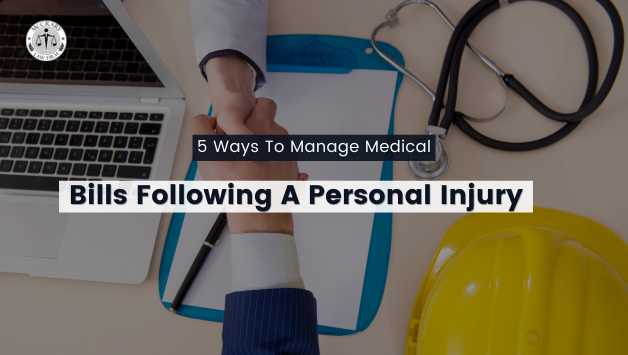Hospital bills can be overwhelming, especially in cases of injury and when hospitalization is required. But don’t worry, because as legal experts, we’ll explain how to deal with medical bills after a personal injury case.
When your injury is caused by someone else’s in an at-fault state, you have the option to seek compensation through a personal injury claim. However, it’s a time-consuming process, and compensation will not be granted until you prove the claim.
Alternatively, in no-fault states, your medical bills may be covered by your insurance provider rather than the at-fault party. We’ll break down these options for you below, so keep reading to find the answers you need!
Who’ll Pay For The Medical Bills In Personal Injury Case?
There are two things to keep in mind when considering who’ll pay for the medical bills in personal injury cases: fault or no-fault state laws. You’ve got to find out which law works in your state.
If your state is a no-fault state, then the parties who are injured can file for compensation from their insurance company. Then, the insurance company will pay the medical bills and the loss, not the person who caused the accident.
Currently, there are only twelve no-fault states in the USA, and if you don’t live there, the rule of at-fault will be applicable. In this scenario, the person who caused the accident will pay for your personal injury, medical bills and overall loss.
However, you must file a personal injury claim first to prove that the other party is responsible for your injury. This entire process usually takes up to 12 months, which means you’ve to pay for your medical bills yourself, and then after some time, you’ll get the compensation.
5 Ways To Deal with Medical Bills After A Personal Injury
Since California is an at-fault state, you must pay for your medical expenses yourself; the steps you can take to do this are below. So, let’s get into the details!
1. Health Insurance
The first option to deal with medical bills after a personal injury is to use health insurance. Keep in mind that health insurance is mandatory by law in most states, including California. People who don’t have health insurance have to pay the penalty.
Therefore, if you live in California, the chances are you must have health insurance. In this case, you need to contact the insurance company, and they’ll pay your medical bills for your injury case.




